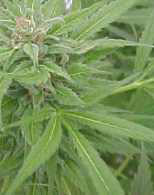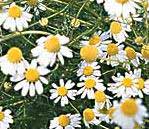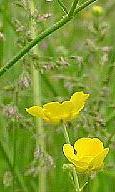|
Biogardener Homepage
Edible Gardening
Getting Started Organically
Healing Hug
Allergy Lifeline
Sunny Manitoba
Born to Be Creative
Theirs Is the Kingdom
Heritage German

Biogardener Guestbookor Read Entries  Send me your own organic gardening story. Email me by clicking on the mailbox graphic. I love hearing from you. Send me your own organic gardening story. Email me by clicking on the mailbox graphic. I love hearing from you.
Related Articles

Chamomile instead of Herbicide and Pesticide

What Are You Doing to My Beautiful Creation
Webmaster's Bio
|
Marijuana, Ukrainian Companion Plantby Traute Klein, biogardener
The vast expanses of the Russian steppes were inhabited by nomadic peoples, and the Russian court invited German farmers to settle those steppes, hopefully inspiring the nomadic tribes to settle down and try their hand at farming. Unfortunately, the Ukrainian nomadic tribes were not inclined to submit to the Russian rule until they were decimated by a systematic starvation campaign. Even though the German communities remained separated from the slavic population, their cultures mingled. Both united in spirit against the oppressive Russian rule. To this day, Ukrainians and Germans cooperate like brothers wherever they are found in the world. The only Ukrainian university is located in Munich, Germany, because the Ukrainian population in what is now Ukraine were deported by the regime of the USSR and replaced with Russians from the north. If you want to receive your university education in the Ukrainian language, you need to go to Germany. Several of my Manitoba friends have received their PhD in Ukrainian in Bavaria.
Unfortunately, that companion plant was on the list of banned plants in Manitoba, and the police confiscated her plants and charged her with possession of narcotics. The plant was Cannabis sativa, commonly known as marijuana, a native of her homeland, a most effective natural protector from insect pests.
"Why waste a perfectly good plant by burning it?" they ask me. "It does not even smell good." It gets planted around the periphery of gardens to act as a barrier against pests. The seeds are gathered not only for next year but also to make flour or to toast and eat as snacks. Those snacks are, in fact, available in Winnipeg grocery stores. The fibres from the stems are harvested and used like those of flax. The cannabis fibres are called hemp, and the flax fibres are called linen.
Poppy seeds are an important ingredient of Ukrainian cuisine. My father grew lots of poppies in our garden in Germany, and the memory of my mother's delicious poppy seed cake makes my mouth water. Our family's custom of eating poppy seed soup on Christmas Eve is derived from the Ukrainian traditional 12 course Christmas Eve dinner. When Ukrainians are reminded that opium is derived from the unripe seed pods of poppies, they shake their heads and mutter, "Why waste a perfectly good poppy plant? Too much fuss for too little return! You would have to drain the latex from the unripe seedpod. Why would you do that when you can get good food from it?" T That is what I would expect from good Ukrainians, just like from the good Germans who raised me. We would consider it sinful to waste good food, and poppy seeds are really good food. Very tasty.
|
The material on this site may be reproduced or republished only by special arrangement with the webmaster.
You are, however, welcome to pass on or link the URL.